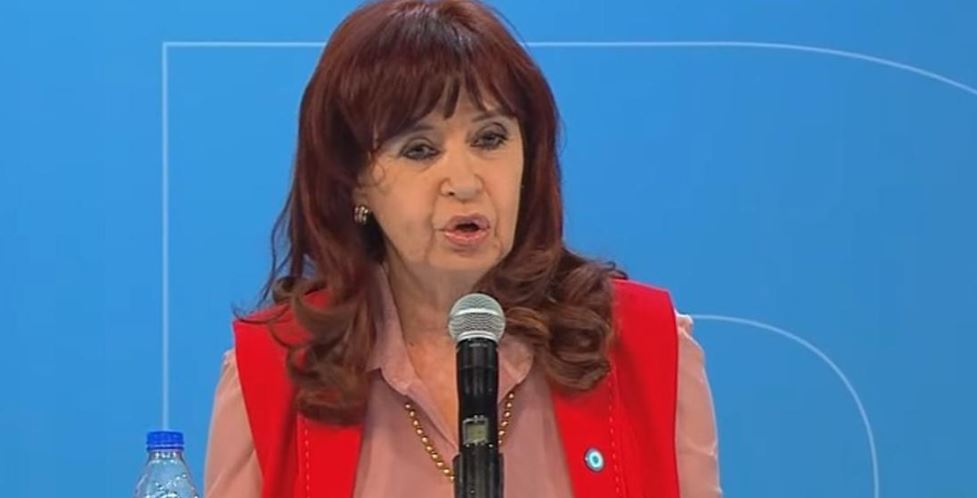
From the UMET, Cristina Kirchner made an extensive speech at the event organized for her to assume the presidency of the Buenos Aires PJ. With the presence of Peronist leaders, the great absence was the Buenos Aires governor, Axel Kicillof. Her absence adds a new element to the conflict that continues after the governor did not give his explicit support to the former vice president in her candidacy for the PJ, when competing with Ricardo Quintela for the presidency.
Cristina began her message trying to make a counterpoint with the national Milei network on Tuesday night on the occasion of one year of her presidency. “There is society’s acceptance of violent adjustment in broad sectors, as long as it’s not my turn,” he stated, as if Milei had the support of the entire society.
Far from this image, 2024 was filled with protests, neighborhood, union, and student assemblies, mobilizations such as education with tens of thousands in the streets, struggle of state workers, teachers, airport workers, retirees, health workers, and the popular economy. . Because when the workers and youth were called by the union leaderships to fight against Milei’s measures, they took to the streets and joined the strikes. Saying that there is only acceptance is denying those struggles, and covering up Peronism’s own role in letting the chainsaw plan run.
The former vice president continued to highlight the economic problems, the shortcomings of the libertarian plan and the undeniably catastrophic consequences it had for broad sectors of the population, with devaluation, increases in rates, services, recession, etc. Coming from the other disastrous consequences of the last Peronist government, armed and composed of Cristina Kirchner, this speech seeks to try to reposition Peronism as an alternative, electoral, in the face of “something worse.”
To show support within Peronism, she appeared on stage accompanied by José Mayans and Germán Martínez, head of the blocks of senators and deputies in the National Congress, and other legislators and former officials of Kirchnerism. But the internal division continues, for example, with the absence of the PJ governors.
“History does not begin when each one arrives or when one leaves. I say this for some late Peronist colleagues,” said Cristina, realizing that the internal dispute with the Buenos Aires governor is not ready to be resolved.
However, the Justicialist party and Peronism are going through a deep internal crisis, as a result of the failure of the government of Alberto and Cristina Kirchner. With Guzmán first and Sergio Massa later, they applied a brutal adjustment to the popular sectors, at the expense of continuing to pay the external debt with the IMF. The driving problem is an electoral problem in Peronism, but its resolution does not seek to address and reverse the social crisis of recent years. Peronism continues to show the absence of an alternative economic and political project to paying the debt, adjusting public spending and unloading its consequences on the popular sectors.
This lack of alternative was also shown during the management of Milei, Caputo and Bullrich. Criticisms in speeches do not correspond to their actions. From the “Peronist-wearing-wig” senators and deputies who approved the Base Law for Milei, like the scandalous Kueider now detained in Paraguay, to the enormous betrayal of the CGT by allowing layoffs and labor reform to pass, while negotiating its own agenda.
In short, “society” did not accept the chainsaw, as the former vice president tries to argue. The chainsaw passed thanks to the collaboration by action or omission of an important part of the regime’s parties, including Peronism.
Source: www.laizquierdadiario.com

